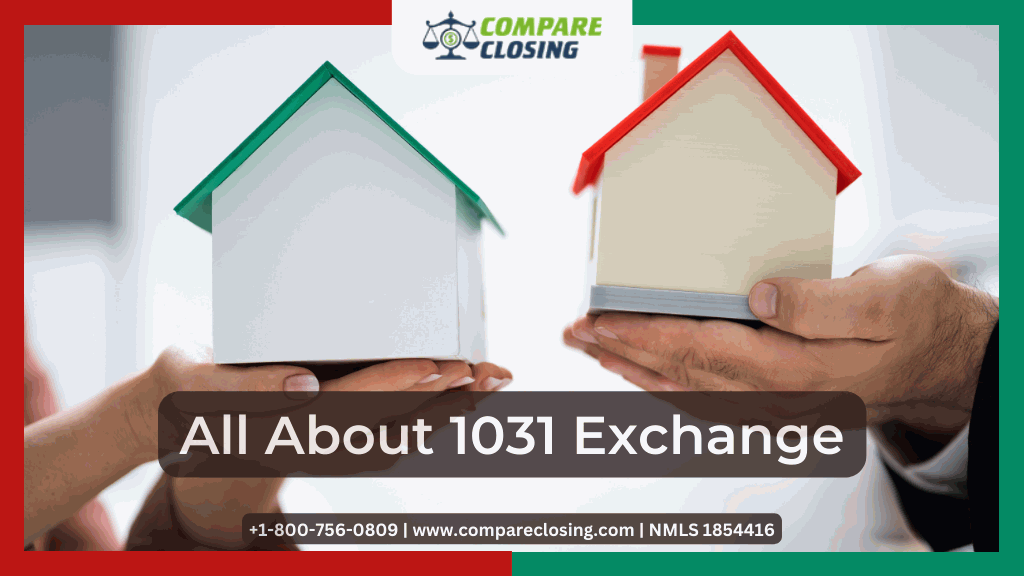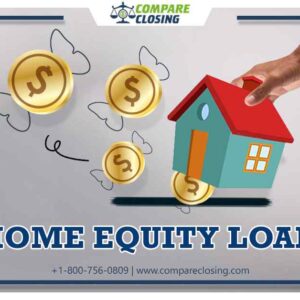Table of Contents
- What Are Netting Escrows & How Does It Work?: The Best Guide - January 2, 2024
- The Secret About Prescriptive Easement: Top Guide 1 Must Know - December 4, 2023
- About Home Equity Loans In Texas And How Can One Obtain It - November 27, 2023
About 1031 Exchange
In real estate investment, taxes play an integral role for many real estate investors. There are many rules and regulations that real estate investors have to follow while building their investor profiles.
One such important implication in real estate investment is known as the 1031 exchange. In this post, we will understand what is 1031 exchange in detail.
What is 1031 Exchange?
The 1031 Exchange is a real estate investment tool that allows investors to exchange their investment property for another property and defer capital gains or losses or capital gains taxes owed upon sale.
This method is famous among real estate investors who want to upgrade their property without getting taxed for the proceeding amount of sale.
This method is also known as starker exchange or like-kind exchange. This 1031 tax exchange may also be applied to other types of properties apart from real estate, like lands or buildings.
How Does 1031 Exchange Work?
The exact 1031 tax exchange process depends on the type of exchange you are going to use. In most situations, you first have to identify the property you want to sell and then choose an exchange assistant to handle the entire transaction.
Just like most real estate investors, you will require a qualified intermediary to hold the proceeds of the sale until you identify the new real estate property you want to buy.
Post the sale, the investor will have 45 days to find the replacement real estate investment property, and to purchase it within 180 days.
It may sound a little complicated, however, the implications of this type of exchange could be huge.
In a general real estate transaction, investors can expect to pay 40% of their taxable capital gains.
Now that you use these exchanges and defer taxes on those capital gains, investors can look for other types of investments, expand their investor portfolios, diversify their investment holdings, or re-arrange their investments with long-term financial objectives.
You can also use this exchange to buy real estate with good cash flow or to lose due to depreciation.
Depreciation allows you to pay less tax as the property wears out over time. For leased properties, the exemption will be phased in over a period of 27.5 years.
If you use depreciation to your advantage, you usually have to pay a depreciation adjustment or income tax on your capital gains after you sell your home.
The 1031 exchanges will let you move these taxes to be paid on a future date.
Deferring those taxes (and capital gains) is a nice perk, but be informed that in this type of exchange there are additional costs involved.
There are still the closing costs and other charges that you have to pay that are traditionally involved in real estate purchase or sale transactions.
It’s a good idea to talk to your trusted tax advisor to find out what charges may be required to pay for a 1031 exchange transaction as many of these could be covered by the funds accumulated in the exchange.
What Are 1031 Exchange Rules?
There are certain rules for this kind of exchange that the investors need to follow about time and type of properties.
Property Rules:
The house you are trading in must meet certain requirements, such as:
- The property to be exchanged must be of the same type or value as the property being sold. Both properties must be similar enough to be defined as “like-kind”.
- The real estate to be exchanged must have similar properties and functions. For example, a rental home or multi-family home cannot be exchanged for a second home. Private residences such as primary residences, secondary residences, or cottages are not eligible for this type of exchange.
- You cannot hold the proceeds made from a sale during the exchange at any time. All funds must be held in escrow by a qualified intermediary, or they will be considered taxable capital gains.
Additionally, section 1031 does not apply to the following:
- Stocks, bonds, or notes
- Trust certificates
- Stocks, bonds, or notes
- Partnership interests
- Other securities or debt
Time Rules:
In addition, as an investor you need to follow some time-related rules:
- Find potential replacement investment property after 45 days from the day you sold your investment property. You have to do this in writing and share it with a qualified intermediary or seller.
- You must purchase the replacement property within 180 days from the day your investment property was sold.
Failing to adhere to the time rules for this type of exchange, you would be taxed for the capital gains.
Conclusion
1031 tax exchange could be one of the best ways for an investor to build a great investor portfolio, defer capital gain tax, and continue to invest in new and better real estate properties.
However, you have to ensure that you follow the property and time rules to avoid any involvement of the IRS.
It requires a lot of patience and knowledge to build a good investor profile. If you are not sure whether your property qualifies for this exchange, speak to your trusted tax advisor to know more.
Amanda Byford
Amanda Byford has bought and sold many houses in the past fifteen years and is actively managing an income property portfolio consisting of multi-family properties. During the buying and selling of these properties, she has gone through several different mortgage loan transactions. This experience and knowledge have helped her develop an avenue to guide consumers to their best available option by comparing lenders through the Compare Closing business.





